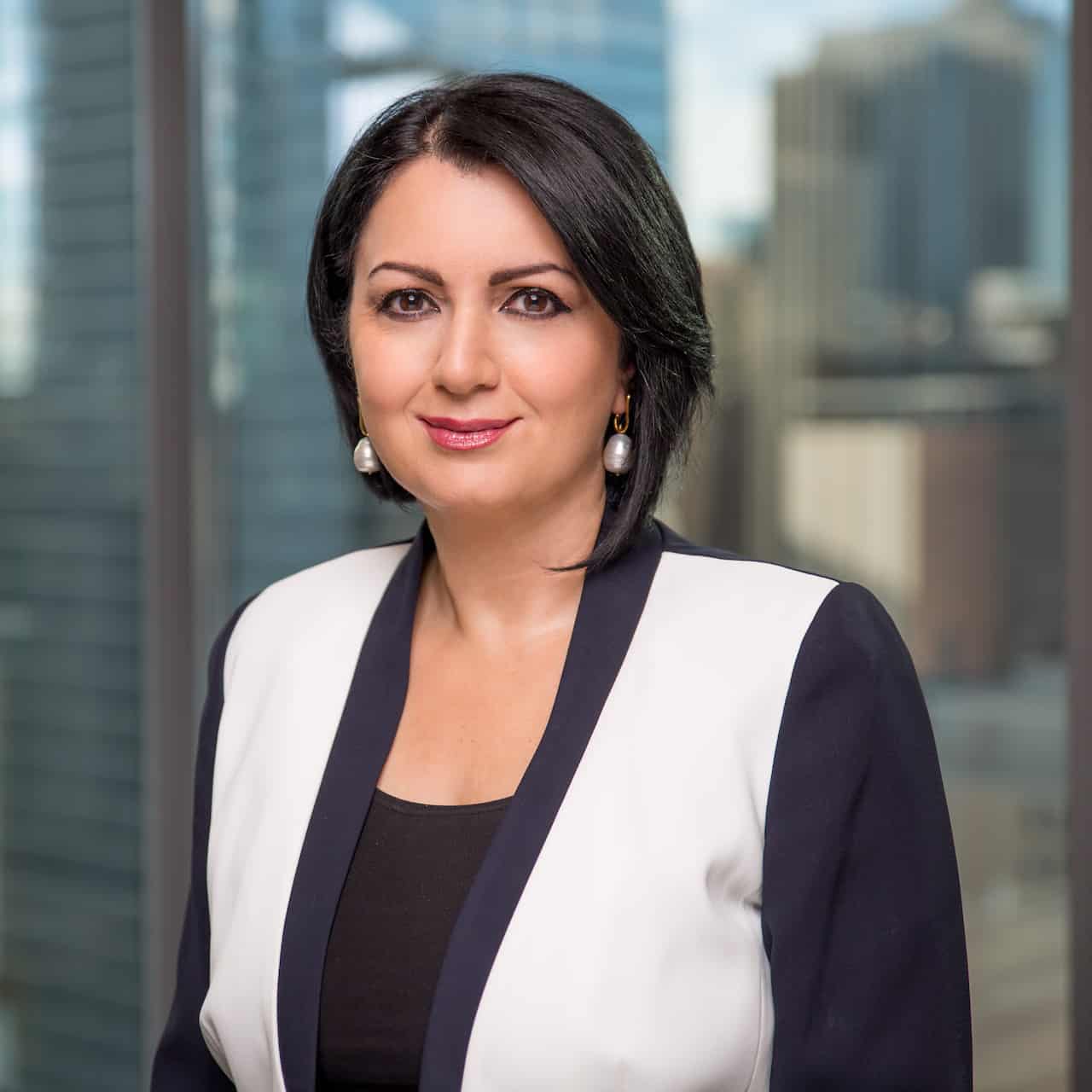Tina Tehranchian is the first Canadian to be selected as Top Senior Wealth Advisor of the Year by the International Association of Top Professionals (IAOTP). To achieve this takes grit, endurance, and ingenuity—all qualities that Tehranchian exudes with grace, and what has helped her grow to become a respected leader on Bay Street.
“As a woman of diverse background, to be the first Canadian to win this award feels especially momentous,” says Tehranchian “I’ve had the unique opportunity to be a role model for the next generation of women in finance. ” While the recent accolade is impressive, it is one of many awards that Tehranchian has racked up in her longstanding career.
Impressed, we asked her some questions about about achieving success in the finance industry and advice for managing money right now in a volatile economy.
What made you want to go into finance?
Initially a career in finance was never my dream career. I have a MA in communications and when I went to university my passion was television production. For me, a career in financial planning and wealth management was a by-product of immigrating to Canada at the peak of the 1990 recession. At that time CBC was laying off thousands of employees and there was no chance of landing a job in communications and television production for me with no Canadian experience. So I thought I should try something for a short while until the recession ends and then try my luck in communications. Then I saw an ad for a job at Sun Life and applied. It was supposed to be for only a few months but I fell in love with this field and found that I could make full use of my communications skills and actually make a positive impact in people’s lives. So here I am almost 30 years later.
What’s it like to be a woman of diverse background working in wealth management ?
It makes me feel very unique as this is a very male dominated field and having a diverse background and a last name that is hard to pronounce definitely makes me stand out. I have actually always found it to be an advantage to be a woman and to come from a different cultural background – it’s given me a different perspective and better appreciation of other people who also have diverse backgrounds.
What is a piece of advice that has always served you well?
Set your goals high and work hard to achieve them.
What has been a great lesson that life during COVID has taught you, from a professional standpoint?
On the professional side, I always had my doubts about working from home and whether my staff would be productive if they worked from home one or two days a week. The COVID-19 pandemic proved to me that my staff are actually more productive working from home and now I have given them the choice to work from home indefinitely if they wish. On the personal side, COVID taught me that so many things that I thought I could not do without were actually not pivotal to my life at all. It also taught me that it is the small things in life that are most precious and the connections with our family and friends that are the most valuable things in our lives.
For people feeling financially hard hit from the pandemic, what’s your best advice for finding stability?
It is no doubt that times are tough for many families today. I think the best cure for financial stress is facing reality head on by reviewing your spending and cash flow needs and then setting a realistic budget not only for spending but also for saving. Sometimes we worry too much about our finances and a review of our financial planning can help put our mind at rest or it can highlight areas that we need to cut back on so we can realize our long term goals.
How can one think about retirement savings, when living with debt?
Paying down debt is important but there is good debt and there is bad debt. If you are borrowing to invest for the long term whether it is to buy real estate or a portfolio of stocks and mutual funds, this is a good debt (provided you can comfortably handle the interest payments) because you can write off the interest and the asset you are investing in has the potential for appreciating in value over the long term. However, if you are borrowing to spend on a vacation or to buy expensive jewellery or furniture, that is a bad debt as you can not write off the interest and the asset you are investing in has no potential for appreciation. When saving for retirement, you also need to take taxes into account. For someone in the highest tax bracket, every $1000 contributed to an RRSP account can generate $530 in tax savings. This tax savings can then be used to reduce the debt.
What’s something you splurge on? Something you’re okay to spend money on?
Education is the one thing I feel comfortable splurging on because in my business knowledge is power and you constantly need to keep up to date with changes in tax rules and the investment landscape.
What do you love most about what you do?
My clients. I absolutely love dealing with my clients as the majority of them are lovely, generous and philanthropic people who are interested in making our world a better place. I specialize in philanthropic tax planning and financial planning for business owners and entrepreneurs. As a result I get to meet some of the most enterprising and generous people in our community and have the privilege of helping them achieve their financial goals and multiply their philanthropic impact.



 Follow Us On Instagram
Follow Us On Instagram
